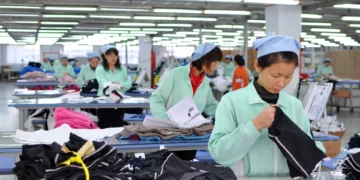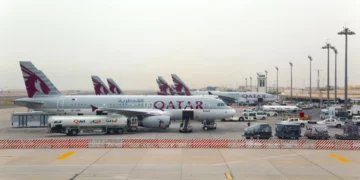The Malaysia budget for 2025 will include modifications for sugar subsidies, domestically produced white rice and RON95 petrol.
In its 2025 budget, Malaysia would likely introduce more subsidy cuts and new taxes for the upcoming year to strengthen its fiscal position amidst anticipation of declining government revenue.
The 2025 spending plan aims to ease rising living expenses while balancing fiscal consolidation and economic growth. It will include steps to implement a tax on luxury items, first suggested in the previous budget, and a tax on sugar beverages.
However, the government dismissed a proposal to restore a broad-based goods and services tax to increase revenue due to weaker dividends from the national energy company Petroliam Nasional Berhad, or Petronas.
The federal government receives most of its revenue from Petronas contributions. However, declining crude oil prices may negatively impact the income from petroleum this year.
According to the 2024 budget, Petronas would contribute the government 32 billion ringgit ($7.45 billion) in dividends this year, as opposed to 40 billion ringgit in 2023.
The government will update its forecast for economic growth to 4.5% to 5.1% for 2024, from a previous estimate between 4% and 5%.
The central bank does not anticipate core inflation to rise above 3%, but it does project 2024 growth at the top end of 4% to 5% this year. The economy grew the fastest in eighteen months in the second quarter, rising 5.9% from a year earlier.
The budget for 2025 will include modifications for sugar subsidies, domestically produced white rice, and RON95 petrol.
The government might also consider reducing the fuel pump subsidies for RON95 grade petrol, which experts estimate could cost up to 20 billion ringgit annually.
It is in addition to the estimated yearly savings of 8 billion ringgit from the rationalization of the diesel subsidies, which went into effect in June, and previous reductions in electricity tariff subsidies.
It would follow after expensive general subsidies were eliminated for chicken, electricity, and diesel fuel, as Malaysia wants to support low-income people and increase government revenue.
The government also proposed significant pay increases and salary restructuring for the 1.6 million government servants, which will take effect on December 1, to raise their wages in step up with the rising cost of living.
Anwar Ibrahim, the Prime Minister of Malaysia, is expected to provide more information about the shift in the defined contribution system for newly hired civil servants, similar to the employees provident fund (EPF) in the private sector, to reduce the annual retirement payout.
The fiscal deficit is estimated to decrease from an expected 4.3% of GDP this year to 3.5% to 3.9% due to subsidy reductions.
The World Bank updated the growth estimate for Malaysia in 2024 to 4.9 percent, from 4.3 percent last week.
The growth was estimated based on the economic momentum due to increased investments made due to political stability and the expansion of the world economy, which increased demand for Malaysian goods.
This change was a sharp contrast compared to the five years before Anwar, during which Malaysia had three prime ministers due to political unrest and a pandemic that gave the government little room for implementing policies.
Under the leadership of Anwar, the government has accelerated digitalization through new investments in data centers and semiconductor factories to meet the 2030 goal of making Malaysia a high-income country.
In the last three years, Malaysia has drawn over US$25 billion in pledged investments from German chip producer Infineon, Texas-based Oracle, and Silicon Valley giants Google, Microsoft, and Nvidia.
The government will impose a minimum of 15 percent corporate tax on internal companies operating in Malaysia and a high-value product tax of between 5 to 10 percent on goods like jewelry and high-end watches to increase its income base.
The 2025 budget may involve reviewing the 1,500-ringgit monthly minimum pay and expanding a progressive wage policy as part of the Anwar administration to increase the minimum salary for the lowest earners.
The overall budget will facilitate Malaysia’s economic and financial conditions with an approach that supports businesses, adopts digitization, and manages its aging population.

















